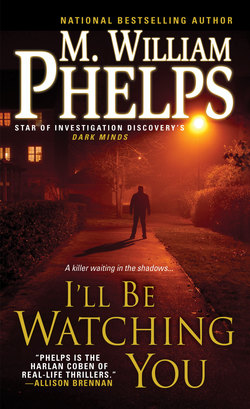Читать книгу I'll Be Watching You - M. William Phelps - Страница 36
На сайте Литреса книга снята с продажи.
26
ОглавлениеI
Ned had always challenged himself to be the best at whatever he did. Sales. Studying stocks and bonds. Tracking the statistics of the Boston Red Sox. Or, of course, studying killers. Whatever Ned did, he prided himself that he was the absolute best. Writing to a friend years after attacking Mary Ellen, Ned could talk about himself—his letters were always about Ned—and encourage his friend not to buy a certain stock in one breath and, in another, describe killing as if it were like clipping hedges or washing his car. In one letter, after warning his friend that GM wasn’t a good buy that month, Ned explained how he had umpired Little League games for six or seven years. He enjoyed being around baseball, he wrote, even on such a young level of play. The money wasn’t all that good ($30 per month), but if he couldn’t play the game himself (he had a bum ankle), being around it satisfied the need to be involved. And yet, after talking about Little League baseball and helping kids, in the next sentence, he mentioned reading all of the books about Bundy he could get his hands on and watching (studying) the movie about Bundy starring Mark Harmon. Ned didn’t see the resemblance between Harmon and Bundy. He said Harmon looked like Lee Harvey Oswald—that is, before launching a detailed description of killing and how to avoid being caught.
Ned wrote that he was always thinking about it.
“It” being killing a woman.
His point was that although it was always on his mind, he didn’t necessarily drive around town like Bundy and prowl for victims or, as he put it, “find a situation.”
What was clear from the letters was that Ned enjoyed the art involved in getting away with a crime as evil as murder. It was something he aspired to. Not a goal, per se, but more than a game. He liked playing. With his victims first. Cops second. Meeting Mary Ellen that night, he wrote, fooling her into inviting him upstairs into her apartment, was a perfect situation. When it was over, however, and he realized Mary Ellen had survived, Ned said he knew he was going to get caught. But even when the cops came and he was arrested—he beamed later when remembering the time period in his letter—he was thrilled how everyone the cops spoke to about him couldn’t say anything bad. No one really knew him. They talked of the man they thought they knew. But Ned had fooled them. And there they were, like fools, supporting him, when he knew damn well that his goal that night, the game he had played with Mary Ellen Renard, involved murder.
Ned loved it: the thrill of fooling all of them. It was part of crime itself.
